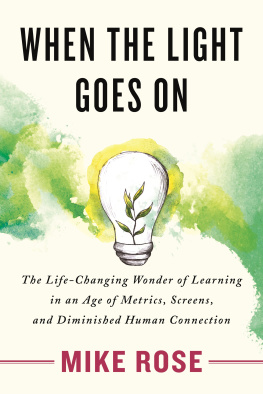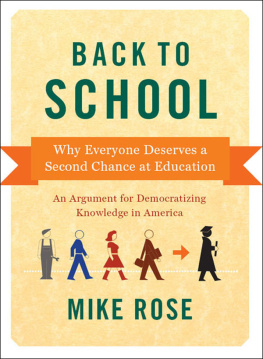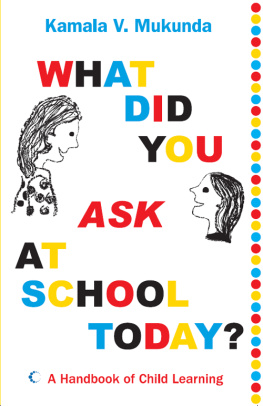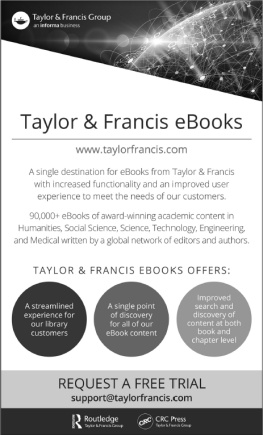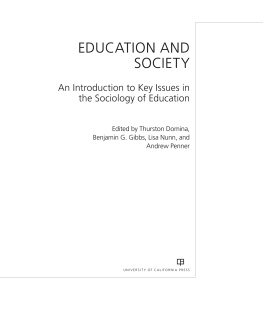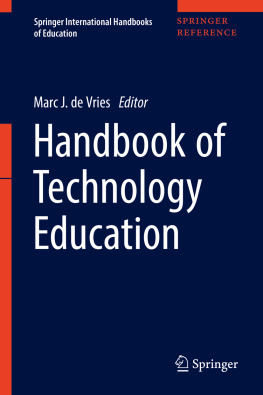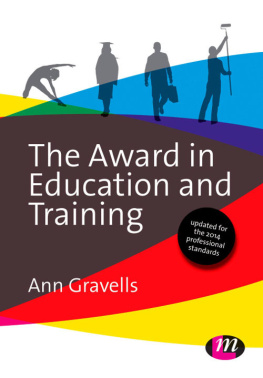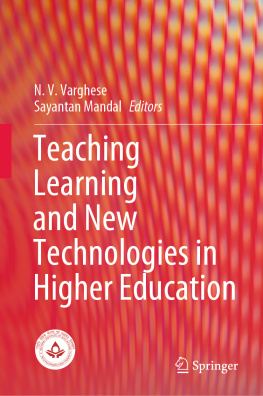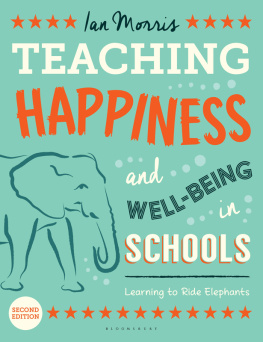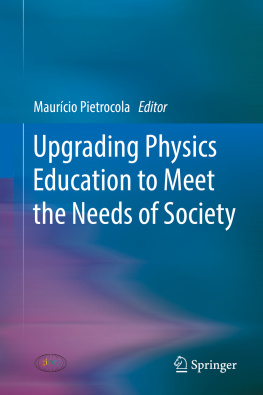Mike Rose, a professor in the UCLA Graduate School of Education and Information Studies, is the author of Lives on the Boundary, The Mind at Work, Possible Lives, and, most recently, Back to School. Among his many awards are a Guggenheim Fellowship, the Grawemeyer Award in Education, and the Commonwealth Club of California Award for Literary Excellence in Nonfiction. He lives in Santa Monica.
ALSO BY MIKE ROSE
Back to School: Why Everyone Deserves
a Second Chance at Education
Public Education Under Siege
(edited with Michael B. Katz)
Lives on the Boundary:
The Struggles and Achievements of
Americas Underprepared
Possible Lives:
The Promise of Public Education in America
The Mind at Work:
Valuing the Intelligence of the American Worker
An Open Language:
Selected Writing on Literacy, Learning, and Opportunity
Writers Block:
The Cognitive Dimension
When a Writer Cant Write:
Studies in Writers Block and Other Composing
Process Problems
Perspectives on Literacy
(edited with Eugene Kintgen and Barry Kroll)
Critical Strategies for Academic Thinking
and Writing
(with Malcolm Kiniry)
Literacy:
A Critical Sourcebook
(edited with Ellen Cushman, Eugene Kintgen,
and Barry Kroll)
Why School?
Reclaiming Education for All of Us
MIKE ROSE

I developed the essays in Why School? from a variety of opinion pieces, commentaries, and blog entriesrewriting, blending and expanding, and updating them in the process. I hold the copyright on this material and want to thank the following publications for printing the earlier work: The Christian Science Monitor, The Chronicle of Higher Education, Dissent, Education Week, Inside Higher Ed, Los Angeles Times, Sacramento Bee, Pittsburgh Post-Gazette, Teacher Magazine, The Washington Post, and the 107th Yearbook of the National Society for the Study of Education, Why Do We Educate? Voices from the Conversation.
2014, 2009 by Mike Rose
All rights reserved.
No part of this book may be reproduced, in any form,
without written permission from the publisher.
Requests for permission to reproduce selections from
this book should be mailed to: Permissions Department,
The New Press, 120 Wall Street, 31st floor, New York, NY 10005.
Published in the United States by The New Press,
New York, 2014
Distributed by Perseus Distribution
LIBRARY OF CONGRESS CATALOGING-IN-PUBLICATION DATA
Rose, Mike (Michael Anthony)
Why school? : reclaiming education for all of us / Mike Rose.
p. cm.
Includes bibliographical references.
ISBN 978-1-62097-004-1 (e-book)
1. Public schoolsUnited States. 2. EducationAims and objectivesUnited States. 3. Democracy and educationUnited States. I. Title.
LA217.2.R723 2009
370.11dc22 2009011077
The New Press was established in 1990 as a not-for-profit alternative to the large, commercial publishing houses currently dominating the book publishing industry. The New Press operates in the public interest rather than for private gain, and is committed to publishing, in innovative ways, works of educational, cultural, and community value that are often deemed insufficiently profitable.
www.thenewpress.com
Composition by dix!
2 4 6 8 10 9 7 5 3 1
This book is for the students and teachers who populate its pages. Collectively, they provide the reasons we go to school in America.
I also want to honor Bud Reynolds (d. 2006) and Steve Gilbert (d. 2008)two of the wonderful teachers from Possible Lives.
And, as I always do, I acknowledge my parents, Tommy Rose and Rose Meraglio Rose, with me now in memory.
CONTENTS
WHY SCHOOL? comes from a professional lifetime in classrooms, creating and running educational programs, teaching and researching, writing and thinking about education and human development. It offers a series of appeals for bighearted social policy and an embrace of the ideals of democratic educationfrom the way we define and structure opportunity to the way we respond to a child adding a column of numbers. Collectively, the chapters provide a bountiful vision of human potential, illustrated through the schoolhouse, the workplace, and the community.
We need such appeals, I think, because we have lost our way.
We live in an anxious age and seek our grounding, our assurances in ways that dont satisfy our longingthat, in fact, make things worse. Weve lost hope in the public sphere and grab at market-based and private solutions, which undercut the sharing of obligation and risk and keep us scrambling for individual advantage. Though we pride ourselves as a nation of opportunity and a second chance, our social policies can be terribly ungenerous. As we try to improve our schools, we rush to one-dimensional solutions, to technological and structural game changers that all too often lead to new problems. Weve narrowed the purpose of schooling to economic competitiveness, our kids becoming economic indicators. And weve reduced our definition of human development and achievementthat miraculous growth of intelligence, sensibility, and the discovery of the worldto a test score.
Historically, national discussions about education have always had a political dimension to them and often have been contentious. But the current debates are so politicized and combative that positions easily get simplified and hardened, and nuance and possible areas of agreement are lost in the fiery polemics. We as a country and, certainly, the children in our schools deserve better. Why School? was written in the midst of these debates and to be sure exhibits a point of view, but I hope that the book can contribute in some small way to a different kind of discussion of why we educate in America.
Why School?
FOOD WRAPPERS and sheets of newspaper were blowing in the wet wind across the empty campus. It was late in the day, getting dark fast, and every once in a while Id look outside the librarywhich was pretty empty tooand imagine the drizzly walk to the car, parked far away.
Anthony was sitting by me, and I was helping him read a flyer on the dangers of cocaine. He wanted to give it to his daughter. Anthony was enrolled in a basic-skills program, one of several special programs at this urban community college. Anthony was in his late thirties, had some degree of brain damage from a childhood injury, worked custodial jobs most of his life. He could barely read or write, but was an informed, articulate guy, listening to FM-radio current-affairs shows while he worked, watching public television at home. He had educated himself through the sources available to him, compensating for the damage done.
The librarian was about to go off shift, so we gathered up our thingsAnthony carried a big backpackand headed past her desk to the exit. The wind pushed back on the door as I pushed forward, and I remember thinking how dreary the place was, dark and cold. At that moment I wanted so much to be home.
Just then a man in a coat and tie came up quickly behind us. Hey brother, he said to Anthony, you look good. You lose some weight? Anthony beamed, said that he had dropped a few pounds and that things were going okay. The guy gave Anthony a cupping slap on the shoulder, then pulled his coat up and walked head down across the campus.
Who was that? I asked, ducking with Anthony back inside the entryway to the library. He was one of the deans, Anthony said, but, well, he was once Anthonys parole officer, too. Hes seen Anthony come a long way. Anthony pulled on the straps of his backpack, settling the weight more evenly across his shoulders. I like being here, he said in his soft, clear voice. I know it cant happen by osmosis. But this is where its at.
Next page

